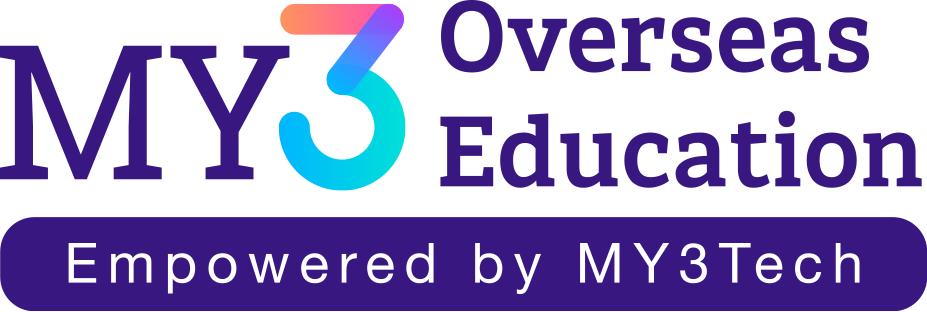The TOEFL, or Test of English as a Foreign Language, is an assessment designed to evaluate individuals’ proficiency in English, particularly for those aspiring to pursue education in English-speaking nations. Administered by ETS (Educational Testing Services), TOEFL examines candidates across all four essential English language skills: Reading, Listening, Speaking, and Writing.
The exam is available in various formats:
- The computer-delivered method, known as TOEFL iBT (internet-based test), is widely used.
- Alternatively, candidates can opt for the traditional paper-based test.
- ETS has also introduced the TOEFL Home Edition, enabling students to take the exam remotely from their homes.
TOEFL scores hold significance primarily among American and Canadian universities and other educational institutions worldwide, serving as a standard measure of English proficiency for admission purposes.
TOEFL Exam Pattern:
|
Description |
Estimated Timing |
Section |
|
Read passages and respond to questions. |
35 minutes |
Reading (20 questions) |
|
Answer questions about brief lectures or classroom discussions. |
36 minutes |
Listening (28 questions) |
|
Talk about a familiar topic and discuss material you read and heard. |
16 minutes |
Speaking (4 tasks) |
|
Read a passage, listen to a recording, and type your response. State and support an opinion in an online classroom discussion. |
29 minutes |
Writing (2 tasks) |
TOEFL Reading Section Pattern:
|
Particulars |
Description |
|
Skills Assessed |
|
|
Question/Tasks |
Two reading passages, each approximately 700 words long, with 10 questions per passage |
|
Total Duration |
35 minutes |
TOEFL Listening Section Pattern:
|
Particulars |
Description |
|
Skills Assessed |
|
|
Question/Tasks |
|
|
Total Duration |
36 minutes |
TOEFL Writing Section Pattern:
|
Particulars |
Description |
|
Question/Tasks |
|
|
Total Duration |
29 minutes |
|
Score Scale |
0-30 (Raw scores converted to scores) |
TOEFL Speaking Section Pattern:
|
Particulars |
Description |
|
Question/Tasks |
|
|
Total Duration |
16 minutes |
|
Score Scale |
0-30 (Raw scores converted to scores by a combination of AI scoring and certified human raters) |
TOEFL Exam Fee and Result:
The cost of the TOEFL exam in India for the TOEFL iBT (Internet-Based Test) is roughly ₹17,000 (USD 205). This amount covers your exam registration, whether you choose to take the test at home or at an authorized test center. However, there are additional charges for certain services, such as rescheduling or requesting score reviews.
Here’s a breakdown of the TOEFL exam fees in India:
- Registration Fee: Around ₹17,000 (USD 205).
- Late Registration Fee: Approximately ₹3,320 (USD 40).
- Rescheduling Fees: About ₹4,981 (USD 60).
- Score Review for Speaking or Writing Sections: Around ₹6,641 (USD 80).
- Additional Score Reports Fee: Roughly ₹2,075 (USD 25).
It’s important to note that the TOEFL exam is widely accepted by universities in the USA, Canada, and other countries, serving as a benchmark for assessing academic English skills in reading, listening, speaking, and writing.
The TOEFL PBT (Paper-Based Test) exam fee in India is USD 180, which is approximately ₹13,300.
These fees cover the registration for the exam and may include additional services such as rescheduling or score reviews. Remember that the PBT is less frequently administered compared to the iBT, so it’s essential to check the availability of test dates in your location.
You can expect to receive your TOEFL iBT scores within 6 days after taking the exam. The exact release date will be communicated to you via the email address you registered with. Once available, you’ll be able to view your individual section results as well as your overall score in your ETS account. Remember that your TOEFL scores are valid for 2 years, so you may want to download and print a PDF copy of your score report.
When is the Exam Conducted?
The TOEFL iBT (Test of English as a Foreign Language) offers flexibility in scheduling, with tests available on various dates throughout the year. Here are key points to consider when planning your TOEFL exam:
- Test Dates:
- TOEFL exams are typically scheduled on Fridays, Saturdays, and Sundays.
- Most test centers offer exams once or twice a month, though schedules may vary.
- Choosing a Date:
- Consider your application deadlines when selecting a test date.
- Aim to schedule your exam at least 2 to 3 months before your earliest deadline to ensure timely score reporting.
- Score reports are typically delivered within 4–16 business days after the test, depending on the delivery method.
- At-Home Testing:
- The TOEFL iBT Home Edition allows you to take the exam from the comfort of your home.
- Ensure you meet the Equipment and Environment Requirements for at-home testing.
- At-home testing is available 24 hours a day, 4 days a week.
- Finding Locations and Dates:
- Locate nearby test centers or schedule an at-home test by searching for available options online.
Plan your test date well in advance to accommodate your study timeline and application deadlines effectively.
Mode of the Test:
The TOEFL exam offers two modes of testing to accommodate various needs:
- TOEFL iBT (Internet-Based Test):
- This is the most common mode and is widely accepted by educational institutions globally.
- The test is conducted on a computer at an authorized test center.
- The TOEFL iBT evaluates four skills: reading, listening, speaking, and writing.
The exam includes sections such as:
- Reading: Reading passages and answering questions.
- Listening: Answering questions about brief lectures or classroom discussions.
- Speaking: Speaking about familiar topics and tasks based on reading and listening materials.
- Writing: Writing responses to questions based on reading and listening materials.
- Paper-Based Test (PBT):
- The paper-based TOEFL test is available in locations without reliable internet access.
- It is less common than the iBT format.
- The PBT assesses reading, listening, and writing skills, but does not include a speaking section.
The exam includes:
- Reading: Multiple-choice questions based on reading passages.
- Listening: Listening to lectures or conversations and answering multiple-choice questions.
- Writing:Writing essays by hand.
Note that the PBT is less widely accepted by institutions compared to the iBT.
Choosing the appropriate mode depends on your location, resources, and the requirements of the institutions to which you are applying.
Eligibility for TOEFL:
Candidates who have completed their 10+2 education from a recognized board are eligible to take the TOEFL iBT. There are no other specific eligibility criteria set by ETS for students who wish to take the TOEFL exam. This makes the TOEFL accessible to a broad range of applicants seeking to demonstrate their English proficiency for academic purposes.

